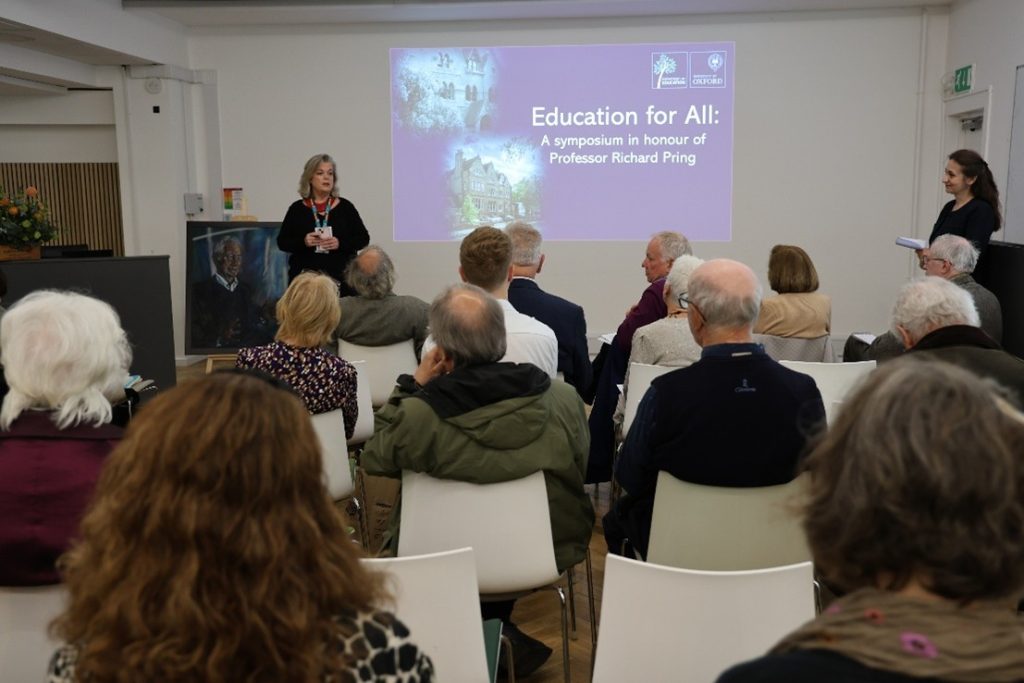The Department of Education at the University of Oxford has launched IDESR (the International Database of Education Systematic Reviews).
IDESR is a free-at-the-point-of-access electronic register of published systematic reviews in education, and a clearinghouse for registering and publishing protocols of planned and ongoing education systematic reviews. This release sees the launch of the first iteration of IDESR, which focuses on the field of second language education.
The team at Oxford has conducted a wide-ranging search for published systematic reviews that address questions related to second language education, and has curated them into a searchable database at IDESR.org. Researchers, teachers, policy makers and any other interested parties now have a one-stop shop for systematic reviews in this field, significantly simplifying the process of locating research syntheses of this sort.
Director of IDESR, Dr Hamish Chalmers of Oxford’s Department of Education, said: ‘When we embark on new research in education, it is imperative that we understand what is already known about our subject of interest. If we don’t, we risk wasting our time, energy and resources on addressing questions for which an answer is already known. Systematic reviews aim to gather all the evidence that has been produced addressing a particular question, assess the quality of that evidence, and synthesise the results to provide an unbiased overview of the overall findings.’
Dr Chalmers added: ‘In addition, teachers and policy makers who want to base their practice and policy on the totality of relevant evidence, rather than on just one or two high-profile studies, now have at their fingertips a resource that will direct them to research that will allow them to do just that. My hope is that IDESR will help to improve the quality of research and practice by providing access to high-quality research syntheses.’
As well as providing a database of published systematic reviews, IDESR is also a clearinghouse for registrations of protocols for planned and ongoing systematic reviews in education. Publishing the protocols of systematic reviews before conducting them encourages rigour in the process and promotes open science by allowing others to see how reviewers have mapped out the process they intend to follow and critically appraise the final review against what was planned. By prospectively publishing review protocols, IDESR also helps to reduce research waste (others can see whether reviews in a field that they are interested in are already under way and, if so, can modify their plans accordingly) and can help to foster collaboration by alerting prospective authors to others in their fields with similar interests.
Professor Sarah Miller, Director of Campbell UK and Ireland, one of the largest producers of systematic reviews in education, said of IDESR: ‘This is an exciting and innovative project that actively promotes rigour in evidence synthesis in education, through providing a means by which to register a systematic review protocol, but also has the clear potential to improve the discoverability of existing systematic reviews in education. In a time when primary research is increasingly prolific, we need high-quality evidence syntheses to help us navigate our way through what the evidence is telling us about what works in education, and to help reduce research waste. IDESR has an important role to play in this endeavour.’
Until IDESR there was no dedicated space to publish systematic review protocols in education. IDESR fills this gap and in doing so has the potential to improve the rigour, relevance and accessibility of research synthesis in education.
IDESR is currently accepting protocol registrations in the field of second language education, and is actively seeking funding to expand its scope to make this provision available to all areas of education. Find IDESR at IDESR.org and follow updates at the IDESR blog or on Twitter @IDESR_org.
Enquiries about IDESR can be sent to Dr Hamish Chalmers at IDESR@education.ox.ac.uk.












